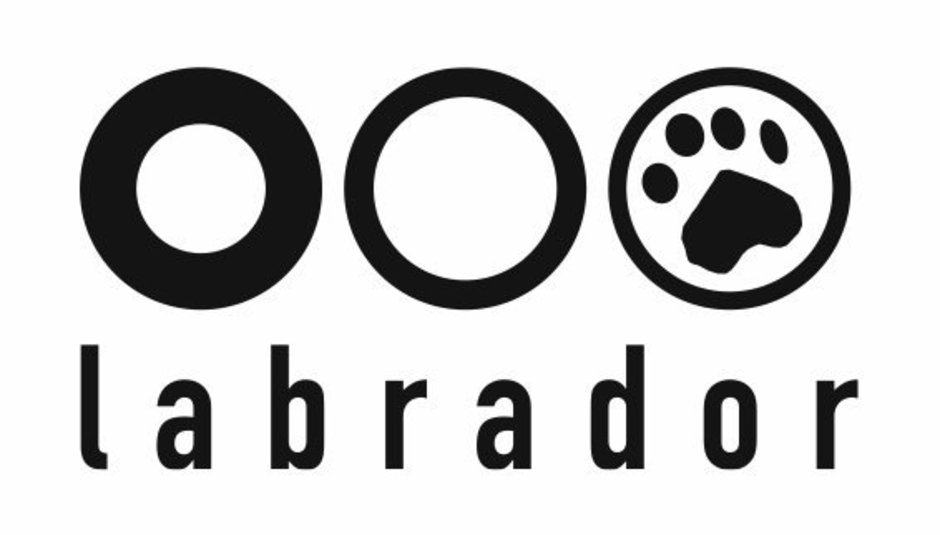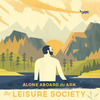One of the most consistent independent labels in recent years has been Labrador. Initially formed in Stockholm by Bengt Rahm at the tail end of 1998, its first couple of releases being compilation seven-inch singles showcasing Swedish bands of the time. One of those bands were Acid House Kings, and it was through their involvement that main mouthpiece and songwriter Johan Angergård became involved with the label. Running his own label (Summersound) at the time, it was this merging of ideas with Rahm that built the foundations from which Labrador has grown ever since.
Having been responsible for releases by the likes of The Radio Dept., The Mary Onettes, Sambassadeur, Club 8, The Legends, The Sound Of Arrows and Pelle Carlberg among a host of others, the label celebrated its tenth birthday in 2008 by releasing the 'Labrador 100: A Complete History Of Popular Music' boxset. Encompassing artists and songs from those first ten years, it also signified the label's 100th release.
Now entering its fifteenth year of existence, the early part of 2013 already looks to be an exciting time for Labrador. New releases scheduled so far include long-awaited albums from label stalwarts The Mary Onettes and Club 8, as well as the debut long player from Swedish singer/songwriter Johan Hedberg.
With the birthday celebrations soon to be underway, Drowned In Sound caught up with Johan Angergård, now essentially responsible for running the label. There, the discussion moved from Labrador and Acid House Kings humble beginnings, to its pivotal role in developing and highlighting Swedish musical talent, to the numerous side projects Angergård finds himself involved with as well as ensuring the label continues to operate.
Later on, we also spoke with The Mary Onettes' Philip Ekström and Johan Duncanson from The Radio Dept. about their time with the label, and in the latter's case potentially opened a huge can of worms in the process.
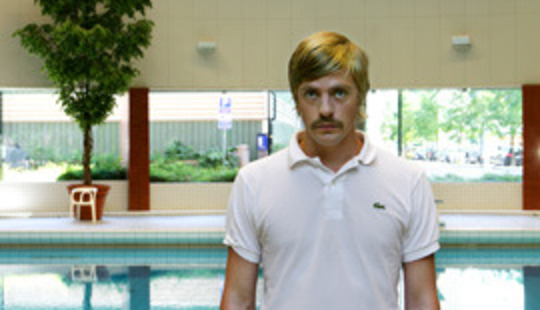
DiS: What made you start the label?
Johan Angergård: I remember when I first started thinking about starting a label. I was in my rather young teens. Me and the other guys in Acid House Kings were big fans of Happydeadmen - which were sort of the first indie pop band here in Sweden - and I really liked a Swedish band called Lunchroom Manners and there was also a couple of other good Swedish bands we liked. So we thought about putting together a compilation album with Swedish bands. That didn't happen around this time though, but a few years later we started a label called Summersound Recordings and the first release was a Happydeadmen compilation. A large part of the compilation was versions of songs that we hadn't been released before and which we, and the band I believe, were a lot better than the ones originally released. So the idea of starting a label simply sprung out of the need to put out these great songs with one of Sweden's most importants indie bands. Around the same time Bengt Rahm founded Labrador Records and he started by putting out two compilation 7" singles. He asked Acid House Kings to be on one of them and he also wanted to release my other band Club 8 in Sweden because we were only released in the US, Japan and some parts of Asia around that time. So that's how I got in touch with Labrador. I soon noticed me and Bengt shared the same ideals and after the Club 8 album The Friend I Once Had - which was Labrador's first album release - was out I joined the label. Later we "merged" Summersound and Labrador.
DiS: Talk me through the early days of Labrador and how you came to be involved?
Johan Angergård: I come from a small town called Åhus in the south of Sweden. In my taste, almost all the good bands in Sweden in the late nineties were from this area. I also happened to know most bands or was a member myself... so almost all the early albums we put out on Labrador were sort of local bands; Acid House Kings, Starlet, Waltz For Debbie, Mondial, Club 8, Leslies.
DiS: Were you influenced by the music of the day to put out records by bands that maybe weren't receiving as much recognition as they should have been? It was a landscape of Britpop, second rate grunge and package holiday dance music back in 1998.
Johan Angergård: To be honest I don't think we expected our releases to receive much attention or recognition in the early days. All my favourite labels were really small and mostly released 7" singles in 1000 copies. The artists on those labels weren't big or popular anywhere, but (perhaps) had a strong but small following all over the world. My own bands were very international in that way too. No one knew about us in Sweden but we had fans in the US, Philippines, Japan, Indonesia, Spain and so on.
DiS: Was it originally intended to be a label purely for Swedish bands?
Johan Angergård: We had a vague idea that it should be I think but it actually took a few years before we more officially decided to only release Swedish bands. Around 2003 there were more good Swedish bands available than we could put out so there was no need in looking outside the borders. I also like the idea of a distinct concept, even though the most important thing about the so called concept would be that everything on the label is 100% in line with my taste in music.
DiS: What was the most difficult aspect of setting up the label?
Johan Angergård: In the first two or three years we know too little to find it difficult I think!
DiS: It seems to be a labour of love rather than a business if that makes sense? How difficult has it been financing and keeping the label alive for so long? Overseas distribution costs for example must be astronomical?
Johan Angergård: Yes, definitely. I need to love all the music we put out otherwise it wouldn't make sense. If money was an issue there are far easier ways of making money. We've worked it very slowly. It took quite some time before we made any money for ourselves from it. Instead we put all the money we made into the next projects. We licensed a lot to other labels in the early days so we didn't have to put so much money into promotion/marketing and so on ourselves. And, at least in the early days, we didn't expect our bands to sell that much. It might sound like a bad thing, but I think it was good for us and for the bands too. Labels that are set on producing world wide hits and big success either ends up bankrupt or releasing crappy music. Or both.
DiS: My two favourite releases on Labrador would probably be The Legends Over and Over and The Radio Dept's Lesser Matters. Which of your releases are you most proud of and why?
Johan Angergård: They're probably the two noisiest albums! It's a boring answer but I'm probably the most proud of Labrador 100. Celebrating 10 years and 100 releases at the same time was beautiful. And we put a lot of love and effort into the compilation (which had one song from each of the first 100 releases by the way) and it was just a piece of art. I was very proud listening to it and looking at it.
DiS: At the same time, are there any records you've put out or artists you've worked with that in hindsight you wish you hadn't?
Johan Angergård: I think we've managed to keep the quality extremely high throughout, but looking back there are perhaps one or two albums that don't quite cut it.
DiS: The label is currently heading towards its 15th birthday. Did you expect it to last so long, and do you see it continuing for another 15 years in the future?
Johan Angergård: I didn't expect it to last that long but that's simply because I never plan so far ahead. Or even imagine what will happen in such a distant future. I might be dead in 15 years, who knows?
DiS: You put out the Labrador 100 compilation to commemorate the label's 10th anniversary. Will there be a Labrador 150 for the 15th birthday?
Johan Angergård: Five years ago CDs were still the big thing so back then it made sense to put our efforts into a compilation. The thick booklet and all the info it contained were a big part of it. If we'd do the same thing now it would feel more like a collectors item as not that many people buy CDs any more. And that would be fun in a way too, but I doubt we'll do that.
DiS: Has modern technology and the growing problem of illegal downloading had an impact on the label?
Johan Angergård: Being able to promote our music online has been a great help. I'm sure we've lost a lot of sales to illegal downloading, but on the other hand I'm sure we've grown more from the upsides of modern technology than we've lost on it.
DiS: What advice would you give to someone that's thinking of starting up their own record label?
Johan Angergård: Follow your taste in music, don't try to adjust to anyone or anything.
DiS: What are the future plans and releases for Labrador?
Johan Angergård: Continuing to release the best Swedish bands on earth! We have The Mary Onettes (as you know...), Club 8 and Johan Hedberg coming up next.
DiS: You also combine running the label with playing in the Acid House Kings as well as several other projects. How do you manage to balance them all? Do any of the other artists on the label accuse you of favouritism towards your own band(s)?
Johan Angergård: I don't tour much with my bands and I don't have a lot of other interests besides music that take up my time so it works fine. I actually heard it from one band. But they need not worry. My bands always get less priority than other bands. And Club 8 and Acid House Kings - especially Club 8 - have been very helpful when it comes to entering new markets with Labrador. Especially in the early days the contacts we got via Club 8 were crucial when it came to getting the music by other Labrador bands out.
DiS: Mondays Are Like Tuesdays And Tuesdays Are Like Wednesdays stands out as my personal Acid House Kings favourite. Which record are you most proud of and why?
Johan Angergård: Which AHK album you mean?
DiS: Sorry, yes, Acid House Kings. We'll come onto some of your others later...
Johan Angergård: I really like Mondays.... It has a very nice rather intimate feeling to it. But the latest album Music Sounds Better With You is my favorite. It's just great songs right through the whole album. And I personally think it's so much better produced than the previous album Sing Along With Acid House Kings.
DiS: Are there any plans for Acid House Kings to release a follow-up to Music Sounds Better With You?
Johan Angergård: Yes, but Acid House Kings are very slow!
DiS: Acid House Kings have now also just celebrated their 20th birthday. What is it that keeps you wanting to make music?
Johan Angergård: I love the feeling of just having written a new song that I'm pleased with. I always listen to it over and over again and these are very rewarding moments for me.
DiS: There's also a new Club 8 record Above The City due in May. What can you tell me about this release and how it came about? The video to 'Kill Kill Kill' is particularly harrowing. What made you use that film with the song?**
Johan Angergård: I'm very proud of Above The City. It doesn't sound like anything we've done before and I don't think it sounds like any other album either. It's a difficult album to describe. Listening to it is like going on a journey. It's the most experimental album we've done I guess. Not that it's experimental in a difficult way - it's 14 great pop songs. But we put pieces together that we normally wouldn't put together. If I should compare it to another Club 8 album Spring Came, Rain Fell is the closest because our way of thinking was slightly the same when we did that one. Above The City is far better though. 'Kill Kill Kill' is of course about eating meat, the meat industry and particularly about how eating meat is justified. I'm a vegetarian but my point is not necessarily that everyone should stop eating meat all together. I just think that if people saw how 99% or so of the animals in the animals are treated they wouldn't claim eating meat is "natural". And it's very strange to see people caring so much for dogs, cats or even a tiger in some far away country while they're at the same time making other animals suffer all of their - very short - lives.
DiS: Will there be another Legends record?
Johan Angergård: Right now I would guess not. But on the other hand I didn't think I'd make more Legends albums after Facts And Figures and then all of a sudden I felt a strong urge to clear my head with noise - and there was Over And Over!
DiS: Likewise with Pallers. Will there be a follow-up to The Sea Of Memories?
Johan Angergård: Yes, I think so. But Henrik (Åberg) who is the other half doesn't seem to have time to do that much right now. It'll probably take a year before we release something.
DiS: What made you start up and become involved with so many different projects? How do you separate your work between bands/projects for example?
Johan Angergård: It's always because I want to do music that doesn't fit into any of the other projects. Acid House Kings for example should always be about creating the perfect guitar pop songs. It shouldn't be about experimenting. Or, as in the case of Pallers, it's something I can't do on my own.
DiS: Are there any other projects on the horizon?
Johan Angergård: I have written a bunch of songs that - at least in this very early stage - sound quite different from my current bands. I'll do something with these songs but I'm not sure what quite yet.
DiS: Which Swedish artists we may not be aware of should we be checking out? Any new artists on Labrador's radar even?
Johan Angergård: Johan Hedberg has recorded some truly amazing songs so I think his debut album will be great.
One of the most prolific and critically acclaimed outfits on the current roster are The Mary Onettes. Having formed in the town of Jönköping at the turn of the century, it wasn't until 2006 after an ill-fated stint on Sony/BMG that the four-piece became involved with Labrador. Two albums and a string of excellent EPs and singles later, they're about to release their third long player, 'Hit The Waves'. Here, frontman Philip Ekström tells the story of how his band came to be involved with the label, how the new record came about and how forming a side project with his brother helped rekindle his creative juices once more.
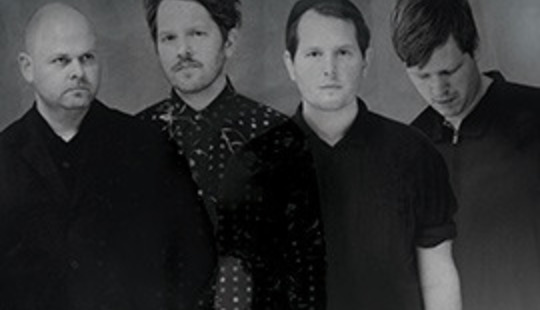
DiS: Tell me about the origins of The Mary Onettes?
Philip Ekström: We come from a little city out of Sweden called Jönköping. A beautiful city near a big lake called Vättern. There is no other place like it in Sweden. We used to play in two different bands that were almost competing with each other. All of a sudden we played together. We struggled a lot with finding an identity for the first five years. We had a number of different names. And finally in 2005 we formed The Mary Onettes and started to record our debut album.
DiS: Was it significant for the band to move to Gothenberg in order to attract attention and recognition from labels like Labrador?
Philip Ekström: Not really. We needed a change. But maybe it was more on a personal level for all of us. But also we worked with a producer in Gothenburg at that time. We were spending quite a lot of time recording with him now and then. And we saw that Gothenburg had a much more vivid scene, which attracted us. Maybe it should have been more logical for us to be on a local label.. But we still ended up with Stockholm based Labrador.
DiS: You were initially signed to Sony/BMG. How would you describe your experiences on a major label? Was that a major factor in you signing with an independent afterwards?
Philip Ekström: We felt that they were very anxious and they had problems with making decisions. They didn't want to release the debut album as it was and wanted to make it sound more commercial. And we thought that it was a pretty good album right there. So we just had to get out of that contract and it was no problem. We wanted to work with a label that allowed us to still have control over what we did. And eventually we ended up with Labrador that saw things more artistically.
DiS: You've been with Labrador since 2006. What first attracted you to the label and would you ever sign with someone else?
Philip Ekström: We had contact with a few other labels. But almost none of the others had any connections outside Sweden. We knew that Labrador was well known outside Sweden and we thought that was good. We felt that our music would work well outside Sweden so we preferred Labrador because they were working more like that.
DiS: What are your fondest memories of working with the label?
Philip Ekström: I guess it's the way they were working with the internet. When we were with Sony/BMG they didn't work much with the internet. I guess they were still scared of the internet. But Labrador had great ways to spread the music there. I remember the first time Pitchfork wrote about us in 2006 or 2007. I thought to myself, "How did they do that?"
DiS: You've been compared to the likes of The Cure and The Chameleons. How would you describe your sound and was the UK alternative guitar scene of the 1980s a major influence on the band?
Philip Ekström: We are very found of the new wave genre. And there was a lot of good bands in the UK scene, But we are not stuck with that. We always find new inspirations as well. I guess we have a typical dreamy sound that we share with many extinct new wave bands. But I think that we take things a little bit further… I guess that many of the new wave bands gradually tried to expand inside their genre. But I find it very important to look across the boundaries. It's a part of my momentum.
DiS: Your latest album Hit The Waves comes out in two weeks. Reviews so far have been quite positive. Are there any expectations around the album?
Philip Ekström: We knew that the expectations where quite high among the fans. We also know that many of them will probably radiate some anger about it. But we wanted to have a reaction. That was a part of the plan. But if you look closer at the album you will see that It has the typical Mary Onettes tone but just in a different costume. At some point we also wanted to make a statement with this album. That we're not the band you think we are. We can do whatever we want! The reason we're called a post punk/new wave band is because people want to categorize us. This is a way to un-categorize ourselves in a way. Even if we still love the new wave genre and probably will find a lot of inspiration there.
DiS: It's been 3 and a half years between Hit The Waves and its predecessor, Islands. Did it take that long to write the new record?
Philip Ekström: No it didn't take that long to write the album. I've been doing Det Vackra Livet which took up a whole year to promote. Then I've been writing so many other songs. Stuff that I don't know what it belongs to. A lot of instrumentals etc.
DiS: How long did it take to write and record Hit The Waves? Which are the oldest and newest songs on the album and which are you most proud of?
Philip Ekström: We started to record the album in April 2012. And it was finished in September. But there were many songs recorded so that's why it took some time. The oldest song on the album is probably 'Evil Coast' and the newest song is 'Don't Forget To Forget About Me'.
DiS: 'Evil Coast' was released as the lead single. What made you choose that particular song and will there be any more singles off the album?
Philip Ekström: Well we felt that this song had something more than normal Mary Onettes songs have. It's more complex and less like a regular pop song. Which we found very cool! We knew that it was a wildcard but people really liked it. And that's what was most interesting. Because normally the labels want to have more uptempo and radio friendly singles. But we just wanted to release a really good song.
DiS: None of the songs from last year's Love Forever EP feature on the record. Were they written and recorded at different times? What made you choose not to include them?
Philip Ekström: Yeah they were recorded during the first session with Dan Lissvik in 2012. They were supposed to be on the album but when we heard them together we just thought that they didn't fit in. And we like to have EPs that stand alone.
DiS: You and your brother Henrik have been performing as Det Vackra Livet for a while. Is that now a major focus for you or are The Mary Onettes still your main priority?
Philip Ekström: Det Vackra Livet was an explosion of feelings and thoughts I had at that time. We made the album in one month. It was a creative outburst that rarely happens! And now I feel that I have no idea if I want to do it again. I write a lot of poems in Swedish . Maybe at some point they will turn into a new Det Vackra Livet record. Time will tell! But I think The Mary Onettes is my baby. I like to see it as a lifetime project.
DiS: Are there any future releases planned for Det Vackra Livet?
Philip Ekström: Nothing at the moment.
DiS: Will there be a tour to coincide with the release of Hit The Waves and if so, are there any UK shows planned?
Philip Ekström: We're gonna do Sweden first in April. Then more will come, hopefully a London show.
DiS: What does the future hold for The Mary Onettes?
Philip Ekström: I have absolutely no idea right now, but we're planning to release more material this year.
DiS: Which other artists on Labrador do you particularly associate yourselves with?
Philip Ekström: None really. There's a huge variety of artists on Labrador, and I can't say that we feel connected to any of the bands. But I guess that's pretty good in a way. We're not very competitive people, we just want to focus on what we're doing without caring so much about other artists.
Arguably the most successful act on the label's roster, The Radio Dept. have gone on to become one of Sweden's most universally acclaimed and influential musical exports. 2003's debut 'Lesser Matters' preceded the shoegaze and psychedelia revival by a number of years, creating a blueprint for the likes of M83 to hone their craft towards. While the follow-up 'Pet Grief' hinted at a more electronic, synthesizer-orientated departure, 2010's 'Clinging To A Scheme', their last release to date, heralded a return to the grandiose, reverb-laden dreampop synonymous with the band's name. Here, in a rare interview with Drowned In Sound, founder member, songwriter and vocalist Johan Duncanson talks about the band's early days, their first meeting with Labrador and how that relationship has soured over the years.
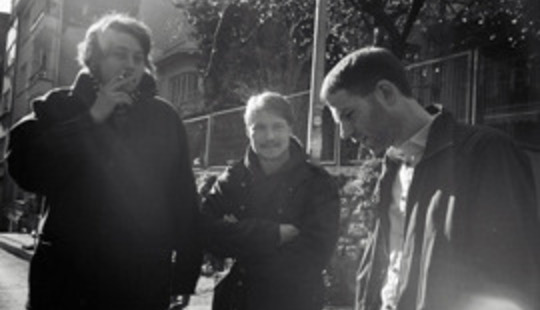
DiS: How did you first become involved with Labrador?
Johan Duncanson: We sent some songs to the Swedish music magazine Sonic and got a good review in early 2002. A CD featuring 'Why Won't You Talk About It?' came with the magazine and Labrador contacted us, asking if they could hear more songs. So we sent a few that I don't think they were very impressed with because nothing happened until a few months later when we had just finished recording our first EP, 'Against The Tide'. We sent it to them, not expecting them to like it but that's when they asked us if we could deliver a whole album.
DiS: You've been together now for eighteen years. What's been the most memorable part of being in The Radio Dept., particularly the most enjoyable moments?
Johan Duncanson: We started the band in 2001 actually, but it's a common misconception. I had another band with a couple of friends when I was 15 called The Radio Dept. and when Martin (Larsson) and I decided to start a band, we nicked the name. The original radio department hadn't been around for years and hardly wrote any songs in the first place. There was a band name and a lot of hanging out but as a musical group, it never really existed. But back to your question, memorable moments... there have been so many... Once in Glasgow Aidan Moffat was in the audience and that was big for us. I bought him a beer afterwards to get to thank him for all the Arab Strap records and he seemed happy about the gesture. We talked for a little while and he was very kind, asking how our tour was going and so on. But i don't think he liked the show too much. And he wasn't really there to see us anyway, Eugene Kelly was also playing. So maybe that wasn't so great after all.
DiS: What is the current line up of the band? Is this the settled line up going forwards?
Johan Duncanson: When we're recording it has always just been just Martin and me. Sometimes Daniel (Tjäder) has joined in, or we've met up with a drummer for an hour or so, but other than that we've hardly involved anyone in the creative process. But our line ups for live shows have varied a lot over the years and will probably keep changing. Right now there's four of us. Martin and me and our old friend Maja (Karlsson) who has played guitar, bass and drums with us live on a number of occasions since 2003, and Mattias (Oldén)who will be handling the electronics.
DiS: It's been a while now since there was any new material. Are there any plans to record a follow-up to Clinging To A Scheme?
Johan Duncanson: Absolutely, we are working on it. It will be kind. Very kind and cheap sounding.
DiS: You've been with Labrador Records for all of your recording career bar the odd single. What first attracted you to the label and what made you stay with them when you could have signed to a bigger one?
Johan Duncanson: Initially they were the only ones to offer us a record deal. We've always been scared of losing control to business people or to anyone but Labrador didn't seem to want to change us. It felt like a good place to be although we didn't feel very close to the other bands on the label. The deal was for an album so we thought we'd give it a go. A little later when XL recordings wanted to put out our first album in the UK there was an option for another three albums in the contract. Then Labrador told us we had to sign with them for another three albums as well, to be able to put out Lesser Matters on XL. I blame our youth and naivety, bordering stupidity, for believing them. But most of all of course, I blame Labrador for pulling a stunt like that. Not that we ever wanted to sign with a major label or to "make it", we just wanted to go elsewhere after a while. Maybe put out the music ourselves, I don't know. I still think Labrador has an identity to them, which is what I look for in indie labels. It's just very, very far from being our identity. And here we are, still one more album to go before we can end this marriage we were tricked into prolonging, ten years ago.
DiS: Your last UK show was at The Great Escape in Brighton in 2011. Are there any plans to tour in the future and will you be returning to the UK?
Johan Duncanson: We are doing a couple of shows in April and May but not in the UK unfortunately. Hopefully soon though, it's been way too long.
DiS: What are the future plans for The Radio Dept?
Johan Duncanson: We're still planning on overthrowing our right wing government by making aggressively kind music. And I have made lots of record covers and song titles for future releases, we just have to fill them with sounds.
DiS: What else have you been up to recently?
Johan Duncanson: I made the sleeve for the excellent Kim Ki O album Grounds that was just released. They're a great band, I'm proud to call them my friends. I'm also in new bands doing new things. Well I'm doing the same old things actually but with new people. Martin lives in Malmo where he's partying a lot. Sometimes he comes to Stockholm and we party together. Not that I need Martin to party, but I've become a bit of a recluse lately and seeing him helps.
DiS: Which other artists on Labrador are you fans of?
Johan Duncanson: We don’t like any bands on Labrador.
The Mary Onettes album Hit The Waves is out now.
Club 8's forthcoming album Above The City is due for release on 21st May.
For more information on Labrador visit their official website.

